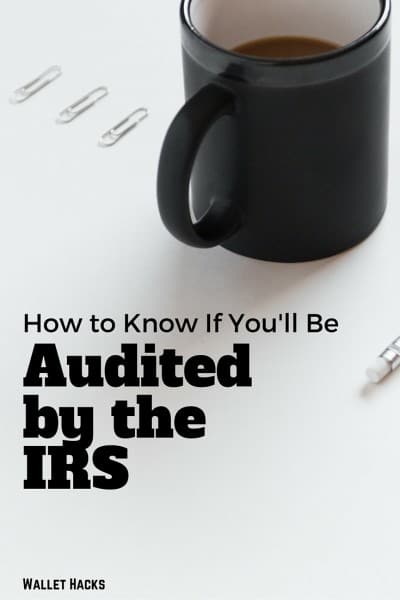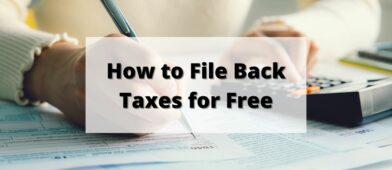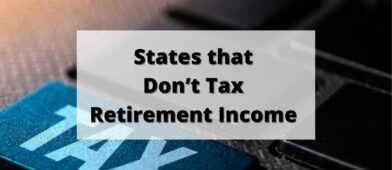Every year, I get into a conversation with someone about the home office deduction. It's one of the many deductions steeped in mystery and fear.
As may not be a surprise for many of you, I work from home. In our home, we have a dedicated office that is used for nothing else. OK, one exception — when our daughter comes in the morning with an armful of stuffed animals and books… for fifteen minutes each day I read the same book over and over again (everyone say awwwww!).
That home office deduction is always one that worries other self-employed folks because it's known as a “red flag” since it's so easy to abuse. Pick a spot in your house, claim it as an office, and offset some of your income. If you get audited (the IRS calls it an “examination,” so cute), show it's regular and exclusive by making it look regular and exclusive. Then show it's your principal place of business, which is easy since you have no other place of business. Boom. Done.
I've never been audited for the home office but I'm not worried, because it is a home office. And now with the simplified option, which is essentially $5 per square foot, there's a near zero chance I will be.
You know what I have been audited for? I've gotten a couple CP2000 clarification letters. They're just automated letters that ask you to explain a computer discovered discrepancy in your tax return. All the forms you received in the mail were also filed with the IRS. One year I forgot a 1099-INT (paid a little extra tax) and the next year I reported a 1099 as a business income item instead of a personal item (paid no extra tax).
The IRS doesn't audit for no reason. They audit when they believe they can make money (collect a recommended additional tax assessment) and make a lot of it.
It's really unlikely they will examine your return. In the 2014 tax year, the latest information they have, only 0.7% of tax returns were examined. 0.3% for those with less than $200,000 income and without the EITC. The number goes to 2.2% for income between $200k and $1mm. (IRS stats)
One of the biggest targets for them are self-employed taxpayers (business returns w/o EITC), they audit about 1.5% of them annually, because self-employed folks are shady.
Oh yeah, and millionaire earners… 7.5% of those folks got examined too. They're shady too. 🙂
How the IRS Picks Who to Audit
 There are a lot of tax returns, so the IRS turns to computer. This meaty paper titled “Comparing Scoring Systems From Cluster Analysis
There are a lot of tax returns, so the IRS turns to computer. This meaty paper titled “Comparing Scoring Systems From Cluster Analysis
and Discriminant Analysis Using Random Samples” by William Wong and Chih-Chin Ho explains the methodology. The gist is quite simple – calculate a scoring formula for each tax return and compare it with a stratified random audit sample that gets refreshed periodically.
This IRS page has less statistical explanation:
- Computer Scoring – “Some returns are selected for examination on the basis of computer scoring. Computer programs give each return numeric “scores”. The Discriminant Function System (DIF) score rates the potential for change, based on past IRS experience with similar returns. The Unreported Income DIF (UIDIF) score rates the return for the potential of unreported income. IRS personnel screen the highest-scoring returns, selecting some for audit and identifying the items on these returns that are most likely to need review.”
- Information Matching – Like my CP2000 notices, if certain numbers don't match then the IRS will request clarification.
- Related Examinations – If your tax return is related to another that they audited, you may be audited too. For example, if you are business partners with someone and their return is examined, it may affect yours since some of their numbers may change. This will prompt a look at your return.
- Potential participating in an abusive tax avoidance scheme – It's a meaty category name but it's similar to the Related Examinations reason. If, for example, your CPA is examined for an abusive tax avoidance scheme, your return may be reviewed since the CPA prepared your return as well.
What's a Audit-Fearing Taxpayer to do?
#3 Related Examinations and #4 Potential Participation in a Tax Avoidance scheme are out of your hands. If your CPA seems shady, find a new CPA.
#2 Information Matching is just an issue of doing your taxes correctly. Go with software, it's usually free, and it's so good nowadays. Most quick tax places you go to these days are just people sitting in front of software… do you really need to pay for that?
The big concern then is #1 – Computer Scoring. When I read the statistics paper by Wong and Ho, the basic idea was that the software was looking for outliers. If you earn $5,000,000 and pay $0 in taxes, that's something that warrants another look.
Here's the thing — abusers will abuse and eventually will get caught. Then their past returns will be examined. If you have documentation, you're safe.
Will you get audited if you claim a home office? Probably not.
Will you get audited if you claim a bunch of cash donations to charitable organizations just under the limit requiring paperwork? Probably not.
Will you get audited if you claim all the gray area deductions? Also probably not.
If you claim the ones you're entitled to, like a home office, you'll be fine even if you claim them all.
Don't let the fear of an algorithm prevent you from claiming what's rightfully yours.
(and if you are fearful, free audit defense can help you sleep at night)
It's the taxpayers who don't have paperwork and are egregious about it… they are the ones who will get audited and penalized because the computer will catch it.
Just to double check, I did what any nerd would do, I started reading these reports. Well, scanning. I skipped a lot of it, honing in on Most Litigated Issues. Unfortunately, the categories are very broad and not particularly useful for an individual taxpayer. There's a lot for small business owners and fall into the category of allowable expenses. Home office was litigated once for an individual and 10 times for a business. Substantiating an expense came up 14 times for individuals and SIXTY times for business – it's really about the other expenses.
I did learn that if you do go to court, don't represent yourself? Pro Se Taxpayers (self-represented) only prevailed 19% of the time while represented taxpayers prevailed 28% of the time. (correlation is not causation… maybe the self-represented knew they were dead meat so they wanted to save money going solo?)
I also discovered another little gem, something I didn't know (I'm not a tax expert) – the Cohan Rule.
The Cohan rule is one of “indulgence” established in 1930 by the Court of Appeals for the Second Circuit in Cohan v. Commissioner. The court held that the taxpayer’s business expense deductions were not adequately substantiated, but stated that ”the Board should make as close an approximation as it can, bearing heavily if it chooses upon the taxpayer whose inexactitude is of his own making. But to allow nothing at all appears to us inconsistent with saying that something was spent.”
There are exceptions to the rule, like for travel, but it's otherwise useful, I suppose, for business folks who buy something and manage to have zero record of it in our electronic age. 🙂




Thanks for the insights! I’m sure your advice will help a lot of people be aware of what will get them in trouble. I think if someone has to do a complicated tax return, it may be worth hiring a good CPA to eliminate a lot of the headache and potential issues. Plus, the CPA will probably better understand what will cause an audit.
I hope it demystifies it a little bit for people, so they don’t believe in “red flags” as some scary thing. The downside with a CPA is that they tend to be more or less aggressive, which is itself a signal that the tax law is more complicated and gray than it should be, and so their style has to match yours.
I have had an accountant file my tax returns for many years. Sometimes I will do them on my own as well because it helps me understand things better. But the final return is filed by the accountant. As such, the accountant also helps deal with the IRS (or other taxing authoring) whenever anything comes up. This is a great sense of security for me. With respect to an audit, in most tax returns there are areas that can be interpreted differently. I have seen where the IRS audits a specific deduction. Rather than fight that deduction, you can agree… Read more »
Thanks for sharing your experience, I’m both surprised and not surprised about the tunnel vision regarding a specific deduction.
As for the “holding back a deduction,” if you would claim it after being audited… why not claim it before?
My accountant and I are both conservative when it comes to my taxes. As such, I’ve stayed away from taking many deductions in what I call the “gray” areas – home office, meals and entertainment, travel, etc. – things that straddle the line between business and personal.
This probably means that I have paid a little more in taxes than I could have, but it helps me sleep better at night.
I have always tried to leave a little money on the table.
“Pigs get fat. Hogs get slaughtered.”
Great article, Jim! Most people have more fear of audits than is likely warranted. Like you said, abusers will eventually get caught, but if you’re doing things properly, there’s no reason to NOT deduct items that are rightfully yours to claim.
My Dad was a CPA before and worked for the IRS prior to that. He always said they were looking for the “big fish” trying to skirt the system. The “little guys” fly by all the time because it’s not worth their while.
Exactly!
The little guys don’t fly by because it’s not worthwhile, it’s because they won’t be the big outliers. 🙂
I need to forward this to my dad. He’s been in business for himself for years however until recently he always had a building to claim. The past 12 years he has ran his business out of the home. He has been scared thanks to his CPA who said he might be flagged if he claims his home office. Thanks for the information!
You’re welcome – if he’s really worried, just claim the square foot deduction and there’s a near zero chance he’ll be audited for it.
What happens if you didnt know your health insurance wasnt covered but you already filed taxes
What do you mean by “your health insurance wasn’t covered?” I’m not a tax expert so I didn’t know what that meant.
If you ever need to adjust your taxes, you can file an amended return with a Form 1040X.
Very interesting stuff. This is my first full year being self employed so I’m slightly worried about being audited. But like my CPA mentioned, and like you did in this post, as long as you have the documentation there is nothing to worry about. I’m considering taking the home office deduction this year I will mention that to my CPA at our tax meeting.
It will also be interesting to see how the shutdown affects tax returns this year. Fun stuff!
We just take the home office square footage “safe harbor” amount of $5 and avoid any messiness there.